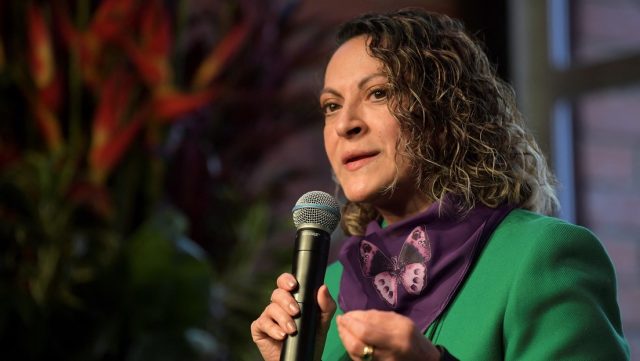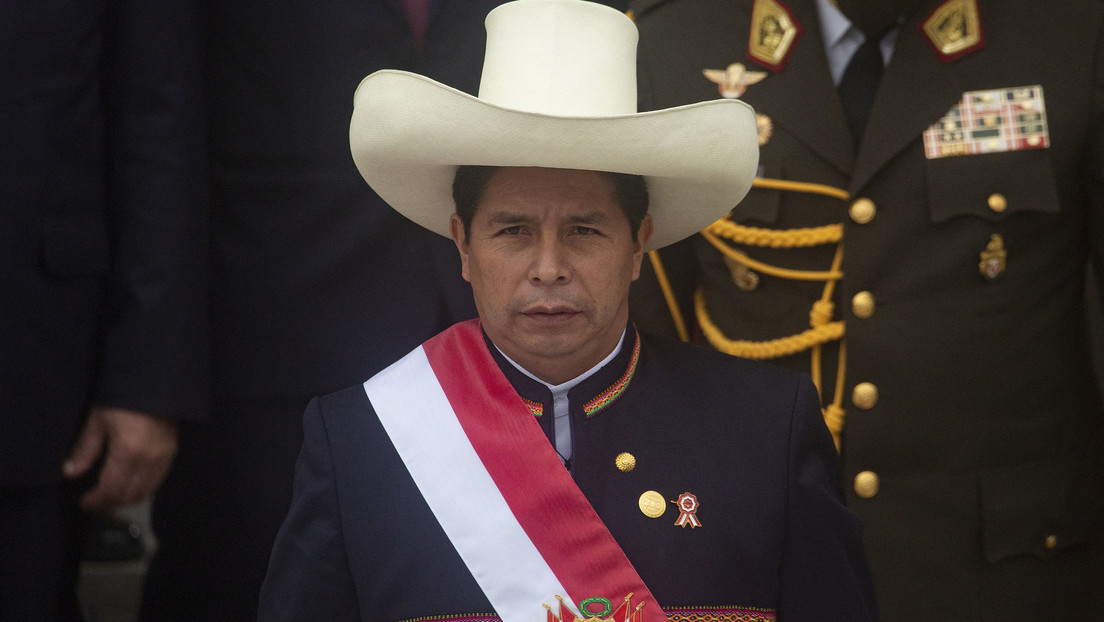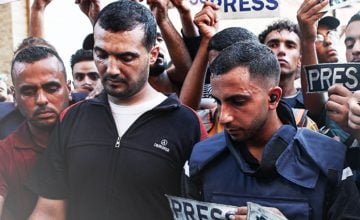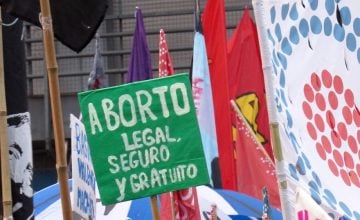The Colombian journalist Jineth Bedoya Lima, one of the victims of the armed conflict in her country, has been appointed by the United Nations (UN) as its new global ambassador in the fight against sexual violence, thus recognizing «her courage and contribution” to the defense of the Human Rights of women victims and survivors of crimes against humanity.
Bedoya’s appointment as «Champion in the Fight Against Sexual Violence in Conflicts», was announced during the UN global event ‘Improving the protection of women human rights defenders and journalists’, held in New York, US. Her designation makes her the first Colombian, Latin American and Caribbean woman to assume these tasks before the world, reports RT.
The Secretary-General’s Special Representative on Sexual Violence in Conflicts, Pramila Patten, called Bedoya a «survivor, activist and agent of change», noting that «she has shown her ability to lead and influence others to take action against sexual violence, helping to raise this issue on the public agenda, not only in Colombia but throughout the world».
“Being a survivor is not just continuing to breathe, being a survivor is to breath so as to help change the lives of others. Sexual violence can nullify us and leave us in an eternal free fall, but survivors have the strength to be reborn through the transformation of pain. I learned that my pain could be a powerful voice that will reach all corners of the world and that is why this appointment for me is not only an honor, it is a great commitment and here is my voice», Bedoya said after her designation.
From the UN, the activist made an “urgent” call to the Special Jurisdiction for Peace (JEP) —the restorative justice mechanism agreed upon during the peace process in Colombia—, to open a macro case that addresses sexual violence in the country.
«We cannot go over the rights of millions of women who have their faith in justice placed in this jurisdiction. Impunity for sexual violence in Colombia reaches 98%, and that is why the commitment to Colombian women must be a commitment of the country and society, we must face one of the worst crimes committed against human beings in a more active and effective way», she added.
Bedoya, another victim of the Colombian conflict
On May 25, 2000, Bedoya went to the La Modelo prison in Bogotá, the Colombian capital, to interview a former paramilitary as part of her work for the local newspaper El Espectador, where she investigated everything related to the armed conflict in her country, drug trafficking and links with State agents.
While waiting at the entrance to the penitentiary, Ella Bedoya was intercepted and kidnapped by a group of paramilitaries, who subjected her to humiliating and extremely violent treatment for hours, during which she suffered serious verbal, physical, and sexual assaults.
After that terrible episode, the journalist, who continued to receive threats, began a tireless fight for justice to be done against those responsible for that crime and began a path to raise the silenced or fearful voice of other survivors like her. However, it took more than 20 years for her to be recognized as a victim of the Colombian State.
On August 8, 2003, Bedoya was the victim of another kidnapping along with the journalist Jhon Wilson Vizcaíno, when two members of the extinct FARC guerrilla, alias Ufa and Gonzalo, held them in the village of Puerto Alvira, located in the jungle. between the departments of Meta and Guaviare, when they were working on a report on the disappearance of 70 people. Finally, they were released five days later, on August 13, due to pressure from the villagers.
On October 18, 2021, in a historic ruling, the Inter-American Court of Human Rights (IA Court) concluded that the State of Colombia is responsible for the violation of the rights to personal integrity, personal freedom, honor, dignity and freedom of expression that the journalist Jineth Bedoya Lima suffered on May 25, 2000.
The Court warned in its sentence that there were «serious, precise and concordant indications» about State participation in the crimes against Bedoya, which had been a permanent claim of the journalist during the last two decades.
“The international responsibility of the State was declared for the violation of the rights to judicial guarantees, judicial protection and equality before the law, due to the lack of due diligence when conducting investigations into said facts, the discriminatory nature due to gender of said investigations and the violation of the reasonable term», said the Inter-American Court in a statement, in which it pointed out that the rights of Bedoya’s mother, Luz Nelly Lima, were also violated, since the State did not grant them guarantees or protection, despite the threats suffered before and after the kidnapping.
‘It’s not time to remain silent’
Bedoya currently works as editor of special issues in the Colombian newspaper El Tiempo. In 2020, she was recognized with the World Press Freedom Prize awarded by the United Nations Educational, Scientific and Cultural Organization (Unesco) and she is the creator of the movement ‘It’s not time to remain silent’.
In August 2014, the then president of Colombia, Juan Manuel Santos, decreed May 25, the date on which she was attacked, as National Day for the Dignity of Women Victims of Sexual Violence in the Context of the Internal Armed Conflict.
Through her campaign ‘It’s not time to remain silent’, started in 2010, Bedoya promotes the denunciation of sexual violence and supports survivors to raise their voices against crimes of this type so that the attacks can be made visible to the public opinion.
As a UN ambassador, Bedoya will now be able to help improve advocacy and awareness of sexual violence, amplify the voices of survivors, participate in events and strategic initiatives for these issues, and promote the mobilization of resources for the care of victims in in the midst of the difficulties that still persist.












